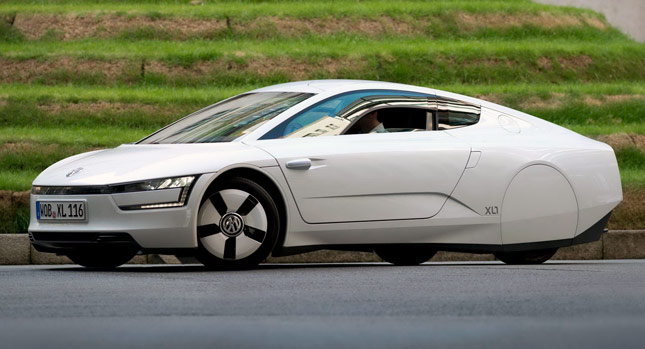For a model that comes from a brand whose name literally translates to “people’s car”, the Volkswagen XL1’s starting price of £98,515 OTR (equal to $169,000 or €123,500) in Britain sounds more of the elitist kind.
To put into perspective, with the same amount of money, you can by the pure electric Nissan Leaf (£16,490), the Toyota Prius Hybrid (£21,995) and just for fun, a Porsche Cayman GTS (£55,397), and still have £4,633 to spare.
But that’s what you get for a super limited production model with cutting edge technology of which only 200 examples will be made.
At least you’ll be saving on fuel as the XL1 uses just 0.9 liters of diesel per 100 km, or 313.9 mpg UK / 261.3 mpg US on the official combined cycle, correlating to an extremely low carbon dioxide emissions value of just 21 g/km.
The XL1’s hybrid powertrain comprises a 0.8-liter two-cylinder diesel unit producing 57hp (48PS) and a 27hp (27PS) electric motor paired to a lithium-ion battery, driving through a 7-speed dual-clutch DSG transmission.
According to VW, “with a drag coefficient of 0.189, the XL1 can maintain 100 km/h [62mph] on a level road in still air using just 8.4PS [8.3hp]”.
Other highlights of the two-seater include the CFRP monocoque and outer skin that allow for a curb weight of just 795 kg (1,752 lbs) and the small cameras that replace exterior mirrors transmitting images to an interior display.
VW has hinted at the production of a sportier version of the XL1, possibly named the XLR and powered by a two-cylinder petrol engine from the Ducati 1199 Panigale superbike.
By John Halas
PHOTO GALLERY

VIDEO














